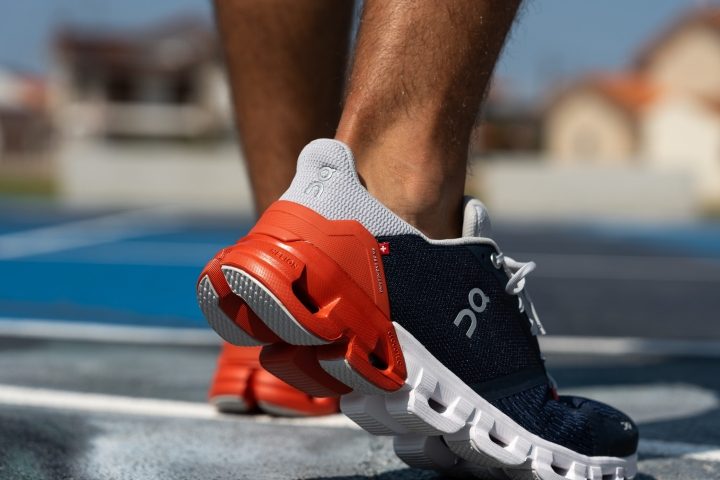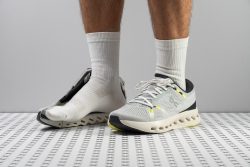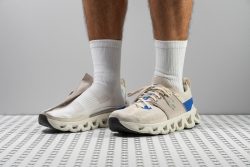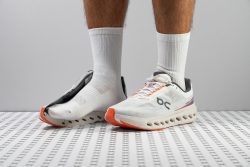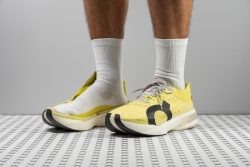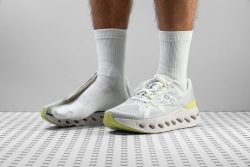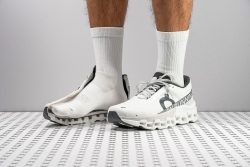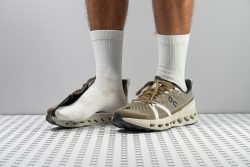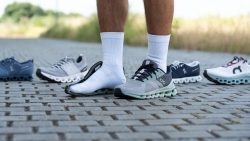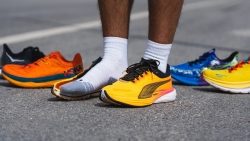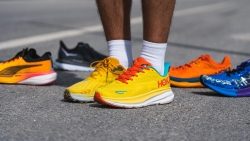7 Best On Running Shoes in 2025
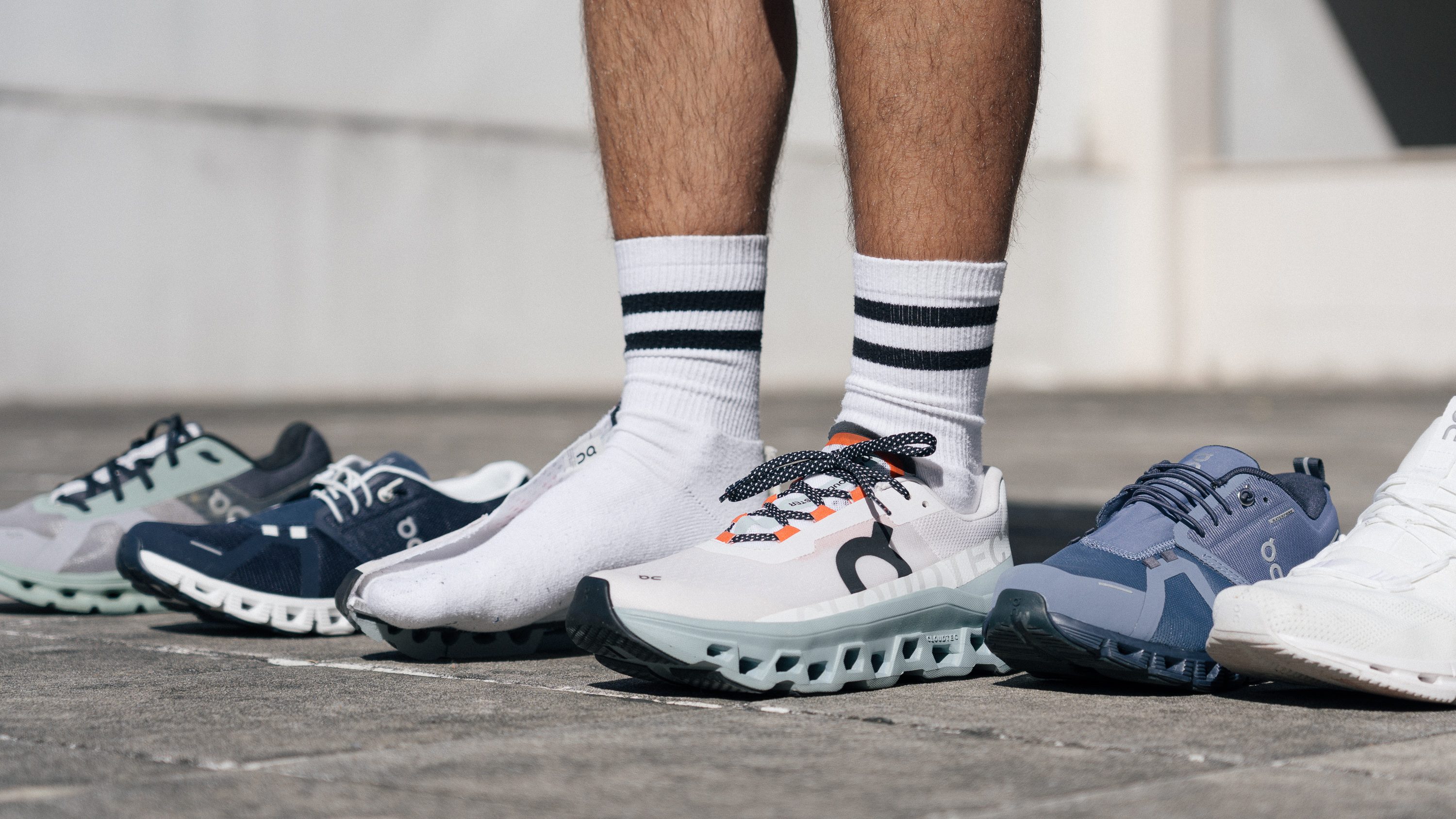
We buy shoes ourselves. We earn commissions when you buy through us, at no extra cost. Why trust us
On is a relatively new entry in the world of running. They started producing running shoes only in 2010, but since then they’ve grown to become a relevant brand. Whether it’s for the road or the trail, On running shoes have got what it takes to compete against established brands like Adidas and Nike.
We’ve carefully tested different models from On in different categories to help all runners pick the best based on their needs. Through our own shoe testing lab, we gather data that solidify our decision to choose the shoes on this list.
How we test On running shoes
Apart from having our independent RunRepeat shoe testing lab, we also buy all the running shoes from On we scrutinise with our own money. This is to make sure we give you a 100% honest review.
To be more objective, we also carry out the following:
- We run in each shoe to see how they perform and how sturdy they are when put through intensive use
- Slice the shoe into pieces to see what’s inside and explore the shoe even deeper
- Publish 30 different parameters on their energy return, shock absorption, traction, breathability, softness, thickness, weight, etc.
Best On running shoes overall
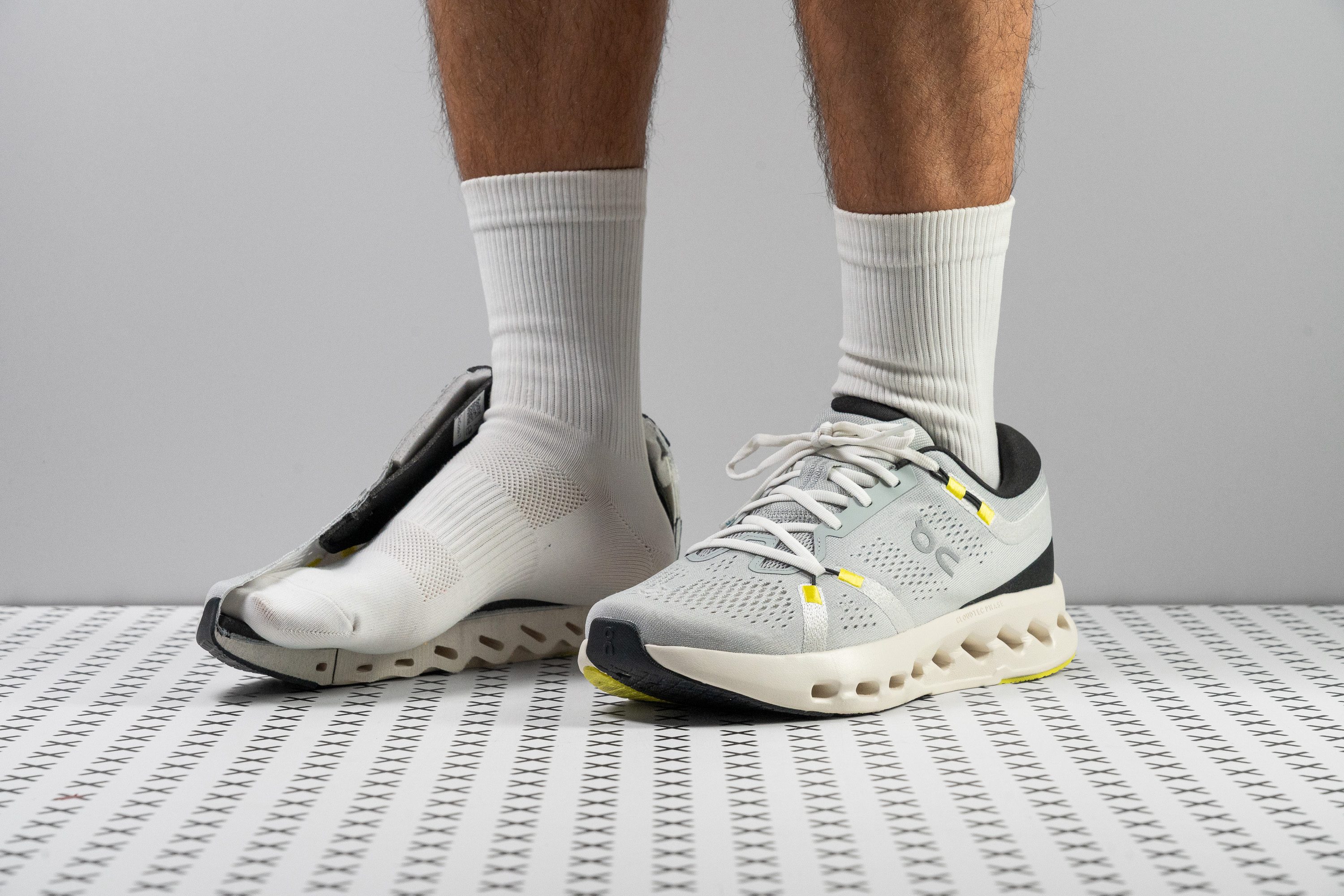












































What makes it the best?
We sailed through the miles with Cloudsurfer 2’s highly cushioned landings and flexible nature. Our lab findings reveal a perfect blend of light weight, well-balanced foam, and high stack, making it our top On running shoe. Its excellent impact absorption and comfort for long-distance runs keep us coming back.
Living up to the brand’s cloud-like trademark, the Surfer 2 boasts a 37.5/27.1 mm stack, which includes the one-of-a-kind CloudTec Phase. Our durometer measured the cushion at a slightly firm 25.5 HA, but it feels much softer than this figure because of the CloudTec Phase’s compression with each stride. What’s impressive is how it manages to be 4.2% lighter than average despite its thick stack.
Cloudsurfer 2 feels effortless, with a modest rocker creating smooth forward transitions and efficient turnover. The midsole is easy to manoeuvre with its unopposing nature. Our bend test shows it’s 22.8% more bendable than average. This feature fosters freedom of movement and a relaxed ride.
With its focus on comfort, Cloudsurfer 2 lacks stability for pronators. Those who need extra guidance are better off with more supportive shoes.
Pros
- Still lightweight!
- Premium-quality materials
- Better than predecessor at long runs
- Great for daily wear
- Durable outsole
- Enhanced rockered shape
- Nice reflective elements
- Enhanced rockered shape
- Nice reflective elements
Cons
- Price tag exceeds performance value
- Not for faster paces
- Lacks a gusseted tongue
- Firm foam doesn't feel like clouds at all
Best daily trainer On running shoes
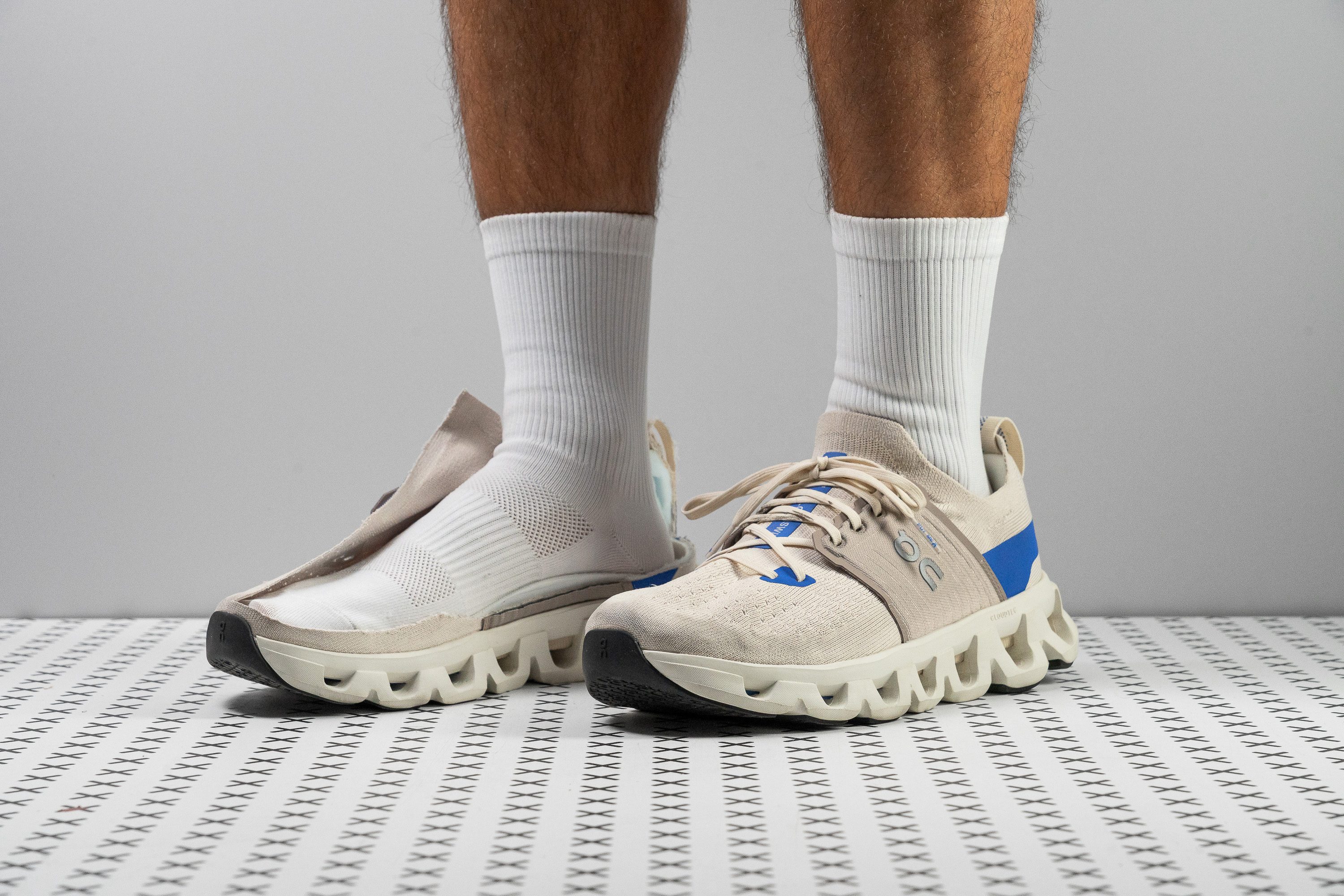














































What makes it the best?
On created its best daily trainer in the form of Cloudswift 4. It’s a versatile shoe that performs as amazing as it looks and has everything that we’re looking for in a daily mileage companion—flexibility, a superior upper, and a supportive platform.
Cloudswift 4 offers a fuss-free experience through its loose build, allowing us to adapt to various situations swiftly. In our bend test, it emerged 28.7% more flexible than average, boosting comfort for everyday wear.
Though this is a neutral trainer, it provides good stability that comes from its moderate 32.7/22.3 mm stack height and broad 93.8 mm heel. These elements guide our feet in place and enhance our surefootedness, keeping us stable even in sharp turns.
Cloudswift 4 features a well-ventilated knit upper that hugs our feet. We felt the breeze even while running in the sun. It scored 4/5 on our breathability test in the lab, showing beyond doubt its high-quality upper.
Unfortunately, the cushion may feel harsh on longer miles, especially for forefoot strikers. Best to check more comfortable options for LSDs.
Pros
- Outstanding knit upper
- Improved traction
- Premium build quality
- Remarkable stable heel
- Versatile for everyday use
- Well-integrated reflective elements
- Plush heel padding
- Built with heel strikers in mind
Cons
- Extremely firm ride
- Tight toebox
- Performance falls short
- Pricey!
Best On running shoes for tempo workouts
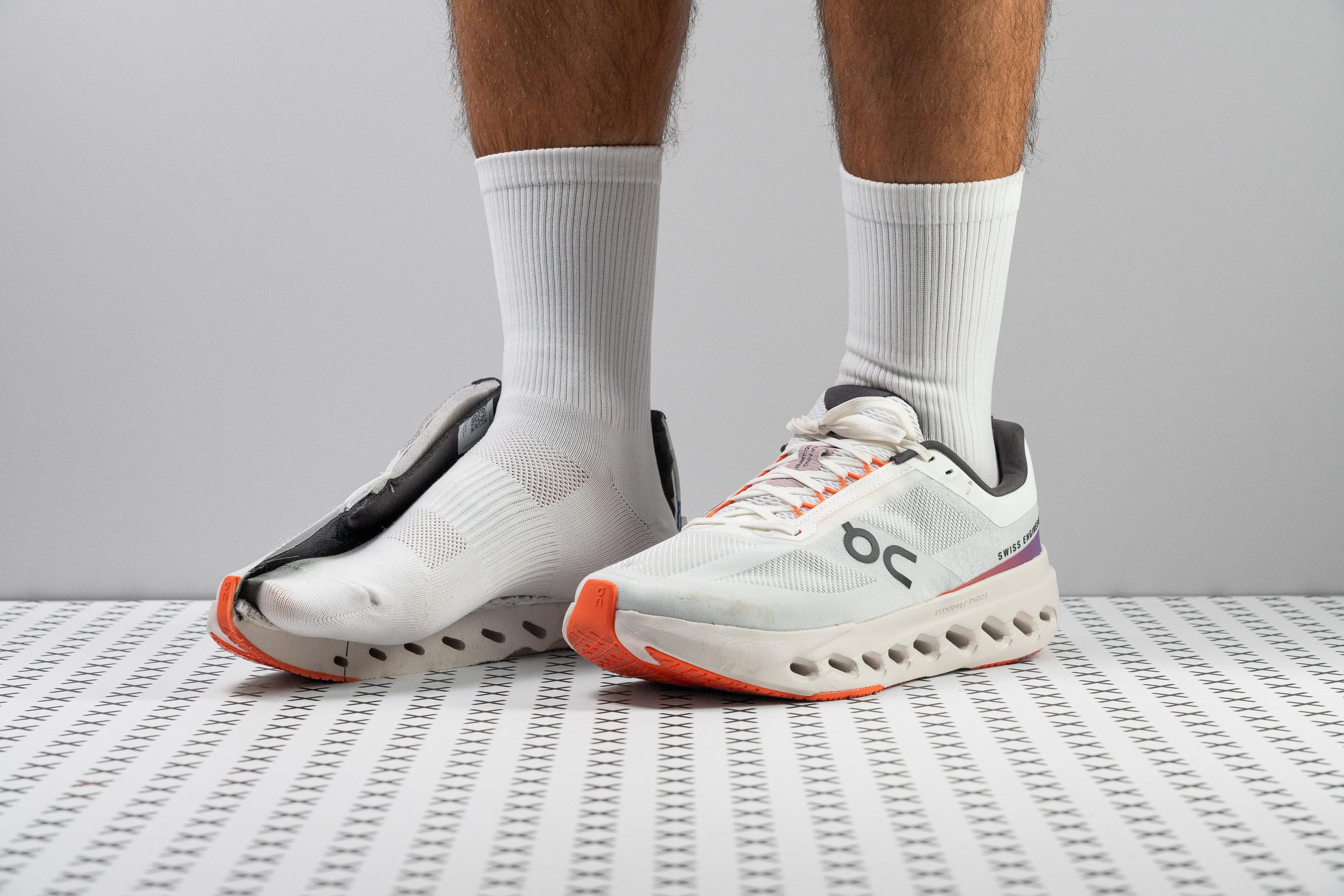























































What makes it the best?
The Cloudsurfer Next seamlessly strikes the perfect balance of firmness, stability, and speed. Its streamlined build effortlessly elevates our tempo sessions, making it our top speed trainer among lab-tested On running shoes.
At 9.3 oz (264g), Cloudsurfer Next weighs lighter than the current lab average of On running shoes, 9.6 oz (271g). It has a narrow platform, with calliper measurements of 111.6/84.5 mm, which reduces its weight and enhances our agility.
The Helion foam has CloudTec pods that add some bounce to the ride, proven by its energy return scores of 56.0% in the heel and 56.7% in the forefoot. This shoe focuses on raw speed and leg power, which is ideal for runners who prefer to pick up the pace without much assistance from the shoes.
Cloudsurfer Next delivers stability through its solid platform and firm cushioning. It offers heightened ground feel with its low profile and minimal 4.5 mm offset, which helps keep us well-planted. In our runs, we felt surefooted with our feet doing the work—the latter being an advantage for muscle strengthening.
Because of its low drop and narrow heel, we advise rear strikers to find a shoe that suits their running mechanics.
Pros
- Amazing build quality
- Excellent stability
- Remarkably lightweight
- Cheaper than most On models
- Reliable lockdown
- Great for forefoot strikers
- Amazing for winter!
Cons
- Heel padding may wear quickly
- Needs better breathability
- Likely too firm for most
- Not grippy enough on wet
Best On shoes for race running
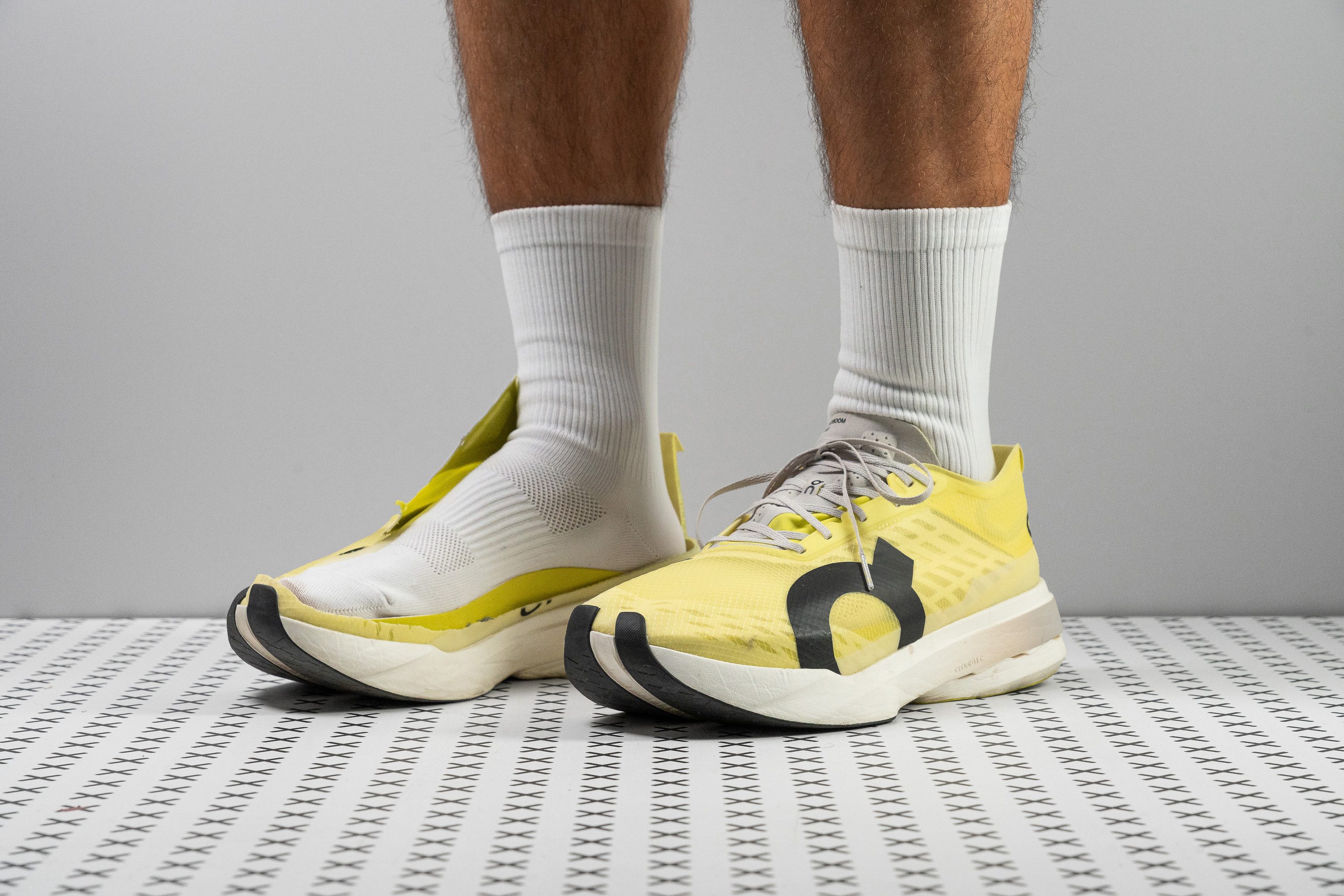














































What makes it the best?
The Cloudboom Strike exudes pure speed, fully deserving the ultimate racer title among On’s lineup. It’s exceptionally lightweight, undeniably responsive, and highly comfortable underfoot, helping us fly through the miles as the streets came to witness. Even our lab results prove it’s a high-performance shoe that can match other winners in the industry.
The boundless energy return comes from the curved carbon plate embedded in the bouncy midsole. Powered by the Helion HF foam, our strides were propelled forward effortlessly, confirmed with solid energy return ratings of 72.1% in the heel and 73.4% in the forefoot.
This racer doesn’t sacrifice comfort for speed. Its shock-absorbing foam maintains our legs’ freshness, validated by high scores of 139 SA in the heel and 127 SA in the forefoot. The stack is a sky-high 38.1/34.9 mm to dampen repetitive landing impact and save our legs from fatigue.
Further enhancing our experience and speed is its light 7.1 oz (201g) build. Our scale proves it offers 24.2% weight savings, which makes it kinder to our feet.
Unfortunately, we cannot recommend this pair to runners needing even moderate stability. With its build, it demands a precise and consistent running form.
Pros
- Exceptional energy return
- Outstanding shock absorption
- Lightweight for its high stack
- Roomier fit than previous model
- Excellent traction
- Innovative Pebax insole/midsole design
- Perfect for forefoot strikers
- Premium-quality materials
- Handles anything from 5K to marathons
- Generous rubber coverage
Cons
- Potential heel slippage
- Not for heel strikers
- A bit expensive
- Limited stability
On running shoes with the best shock absorption
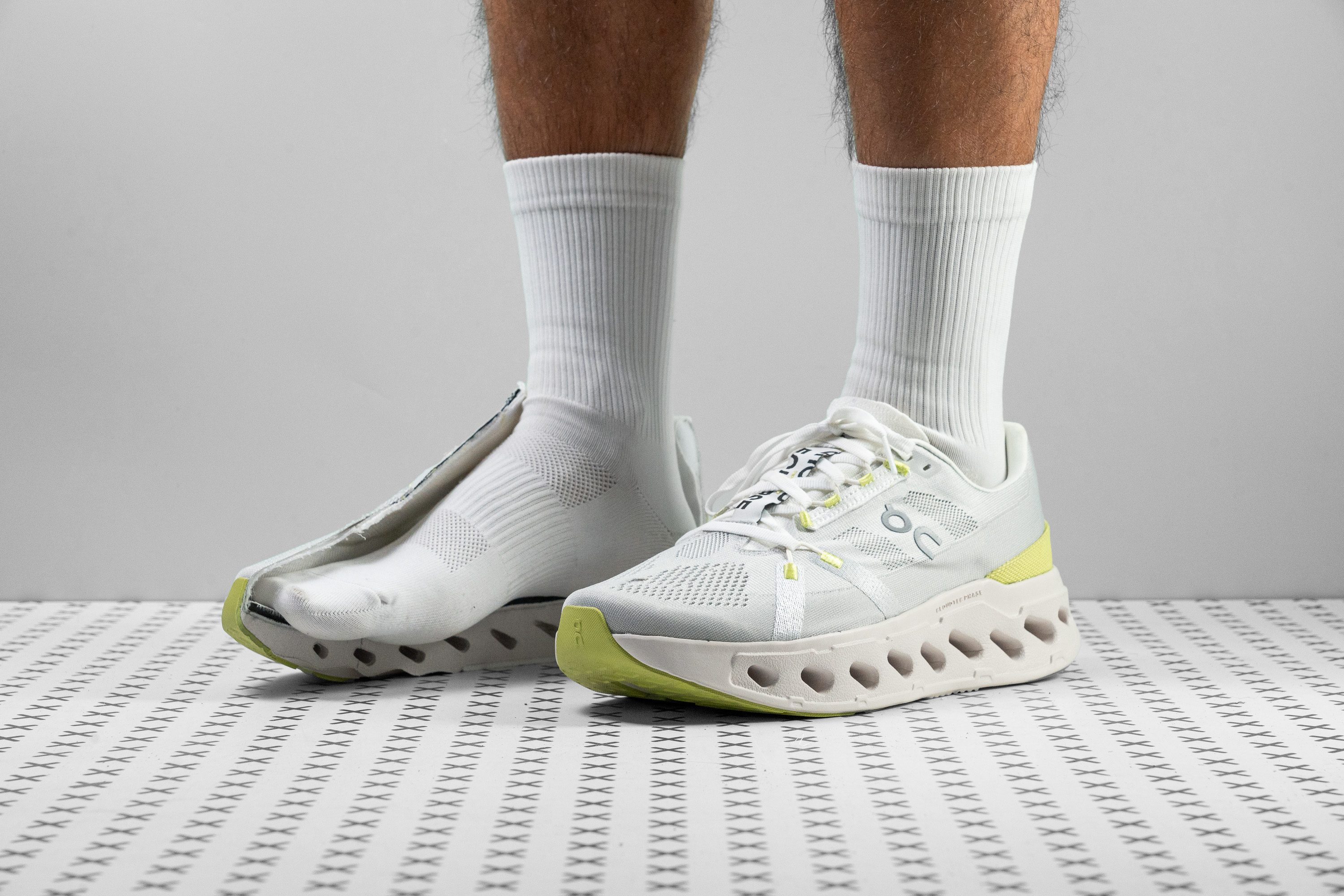


















































What makes it the best?
With the On Cloudeclipse, comfort is the top priority. From its joint-protective cushioning to its lightness and breathability, it offers a soothing yet agile ride, catering to all kinds of runs and runners. After comprehensive testing in the lab and out on the streets, we confidently claim the Cloudeclipse as the On running shoe with the best shock absorption.
The Cloudeclipse boasts an impressive midsole, towering at 39.9/30.5 mm—a significant 5.1/4.4 mm increase over our lab averages. Testing for its shock absorption, it scored high ratings of 141/124 SA, showing 9.3% and 17.0% more impact protection than the standard, respectively. CloudTec's compression and bounce add to the gentler feel underfoot, with its angled design directing us forward.
Surprisingly, it maintains a low 9.6 oz (272g) weight for its size. It does so by keeping its dimensions narrow, helping the shoe feel less bulky on the foot.
Embracing us is a plush yet breathable upper. We observed through our microscope how it’s dotted with dozens of large ventilation holes, which contributed to its pleasant 4/5 ventilation score.
However, Cloudeclipse’s unique cushioning doesn’t offer the ultra-plush cloudlike feel. Those searching for a pillowy sensation underfoot won’t find that here.
Pros
- Most cushioned On model to date
- New CloudTec Phase technology enhances speed
- Improved upper with better durability and breathability
- Extremely long-lasting outsole and upper
- Effective heel lock
- Good stability considering its stack height
- Comfortably smooth ride
- Excellent lockdown for regular-width feet
Cons
- Helion foam lacks energy return
- Seems overpriced, like other On models
- Actual drop significantly varies from the stated measurement
Best On running shoes for wide feet
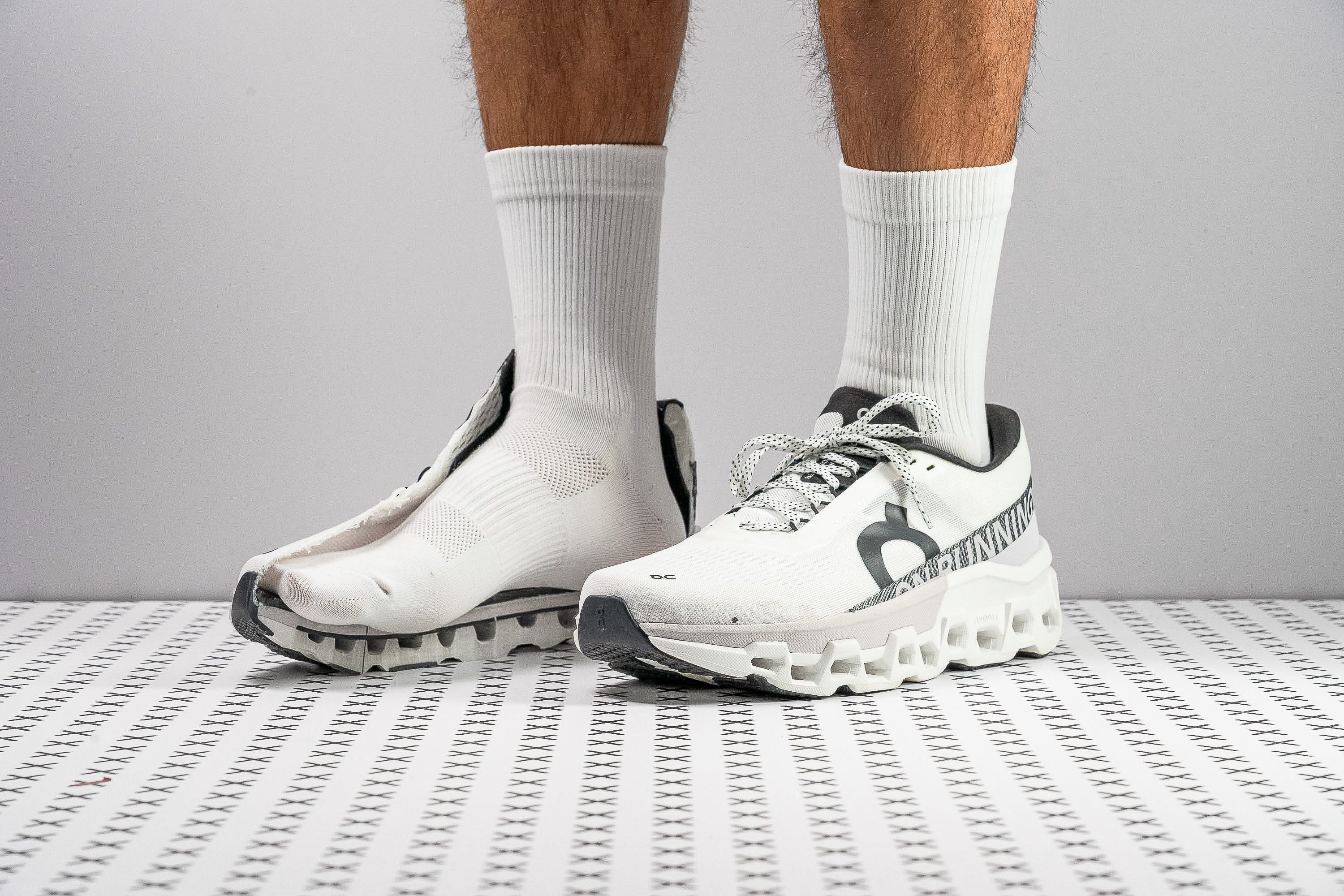

























































What makes it the best?
The Cloudmonster 2 proves its worth with each stride, offering comfort and stability during our runs. Extensive lab analysis highlights its spacious platform, resilient midsole, and excellent support, making it the top choice among On running shoes for wide feet.
Cloudmonster 2 not only brings comfort but inspires confidence in our strides. It has an expansive landing base and a wide fit for our relief and sure-footedness. Our calliper reveals a 117.2/86.3 mm midsole, the forefoot notably being 2.9 mm wider than average. Using our gel mould, we measured the ball of the foot at a generous 98.5 mm vs. the 95.4 mm average, giving us room to swell without hotspots.
Staying true to On’s core, it features a firmer-than-average 26.5 HA foam that feels a lot softer due to its “clouds” that absorb landing impact and spring us back with energy when it returns to its original form. Further proving its well-protected ride is its high shock absorption score of 137 SA, 7.9% above average.
Because of its wide dimensions, Cloudmonster 2 doesn’t have to make its structure too stiff. In our torsional rigidity test, it received a middle-of-the-road 3/5 rating, making it great for daily training.
Unfortunately, we cannot recommend this pair to those who want maximum breathability. With a low 2/5 rating, it’s not a good choice for long runs in the summer.
Pros
- Premium materials
- Enhanced cushioning from v1
- Roomy toebox
- Works fantastic for midfoot strikers
- Unique ride feel
- Excels in long runs
- Solid stability
Cons
- Breathability needs improvement
- Tongue lacks enough cushion
- Needs to lose a bit of weight
- Not enough energy return
Best On running shoes for road-to-trail
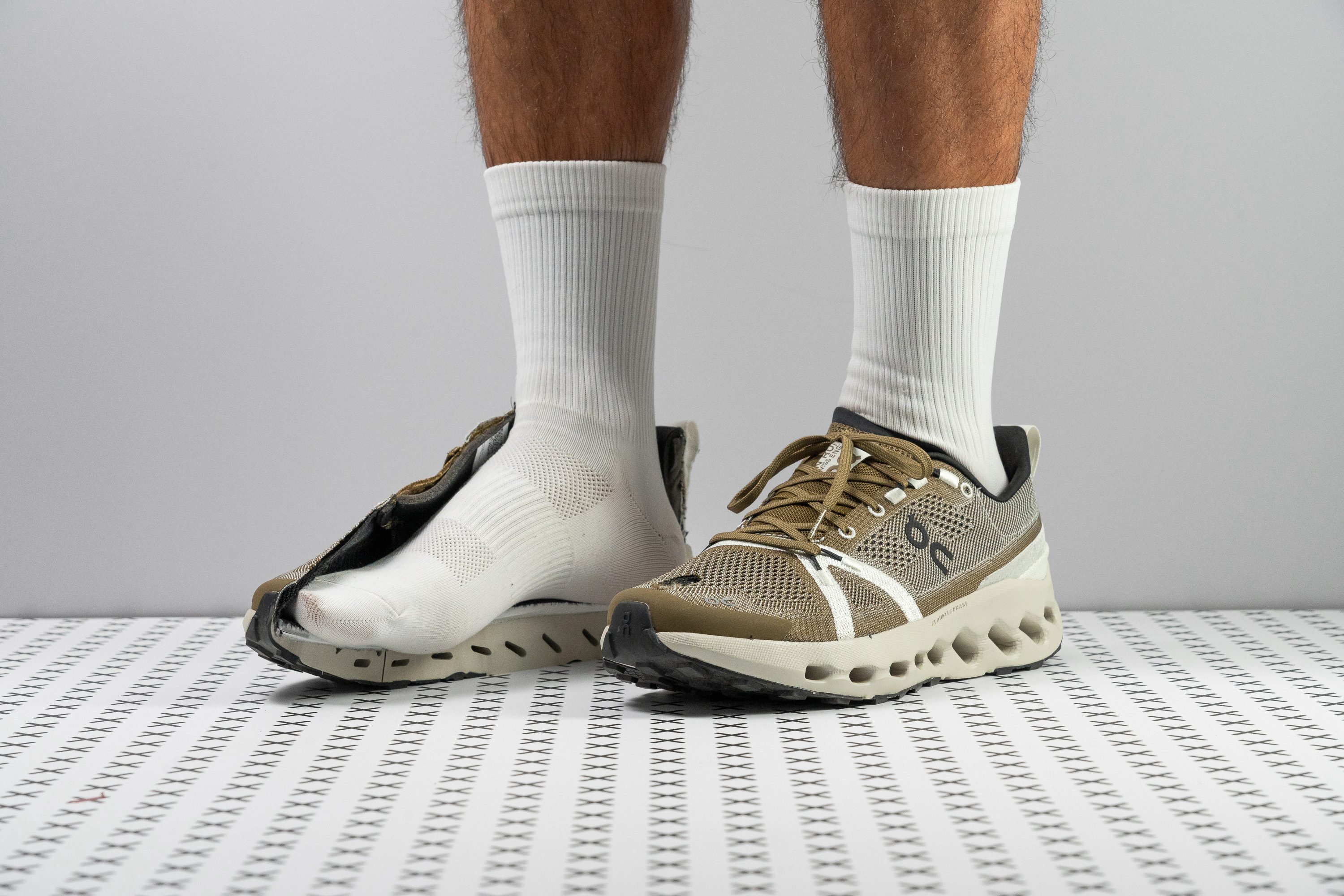






















































What makes it the best?
We couldn’t help but notice On Cloudsurfer Trail’s high level of versatility and comfort during testing. It’s a lightweight, fuss-free trainer with a robust Missiongrip outsole for rugged terrains. Proven by the lab, it performs well on various surfaces, making it our best road-to-trail On running shoe.
The ride feels seamless as we transition from the city to off-the-beaten paths. The lugs underfoot measure 2.5 mm—grippy enough for moderate trails without feeling too bulky on the streets. The outsole features On’s Missiongrip rubber with a high durometer measurement of 90.4 HA. We put it further to the test with our Dremel, and our jaws dropped with its barely visible 0.3 mm damage vs. the 0.9 mm average.
Mirroring its road counterpart, Cloudsurfer Trail feels weightless, and our scales confirm it’s only 9.6 oz (272g) vs. the 10.3 oz (292g) average. Adding to its lightness and comfort is its fluid build, which our bend test reveals is 28.8% more flexible than average.
Despite its lightness, this hybrid shoe is highly cushioned. Its above-average 37.4/26.7 mm stack measures a firm 26.4 HA per our durometer. Nonetheless, it feels much softer underfoot due to the compression of the new CloudTec Phase system, allowing us to stay on foot longer.
However, the 10.7 mm drop feels excessive for tackling technical terrains. Those who prefer a more grounded experience should check other options.
Pros
- Exceptional outsole durability
- Excellent build quality
- Truly versatile design
- Remarkably light for trail use
- Cushioned
- Flexible and comfortable
- Wonderful for heel strikers
- Works well on asphalt or concrete
Cons
- High drop for trail running
- Pricier than similar models
- Limited energy return
How to choose On running shoes
On shoes are immediately recognisable for their unique midsole (which has holes in it!) and for their name, which always starts with “Cloud”. They can’t be mistaken for another brand.
But how do you know which one is the perfect match for you?
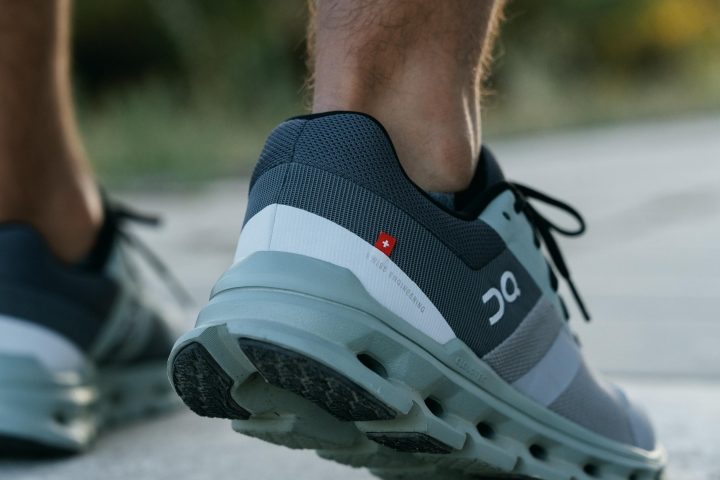
To answer that question, let’s have a look at the type of terrain as well as your pace, distance, pronation, foot strike, and foot width.
Road or Trail? Where do you run?
Most shoes from On are meant for running on roads, but there are also a few options for trail running as well.
Get a road running shoe if you run mainly on paved surfaces, asphalt, tarmac, or track. The Cloudswift is an example of a road running shoe from On for short runs.
Keep in mind that some shoes of this kind can handle gravel as well, as long as they have a durable and grippy outsole, like the Cloudmonster.
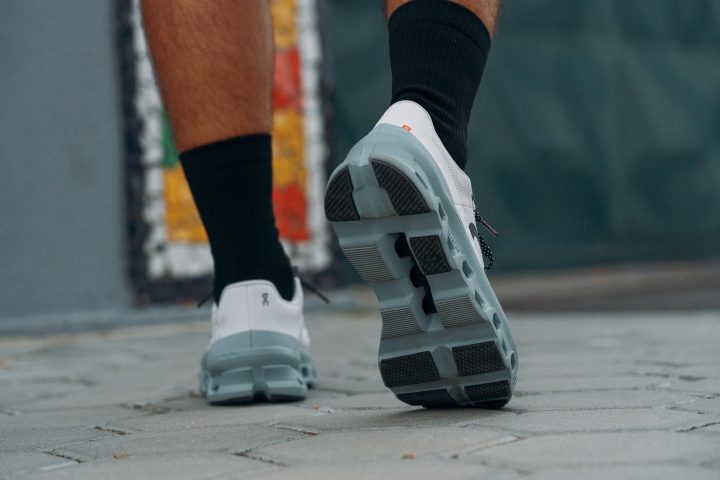
Get a trail running shoe if trails, grass, rocky terrain, and mud are where you usually run. For example, the Cloudultra 2 is stable, feels light, and is very comfortable even for long runs.
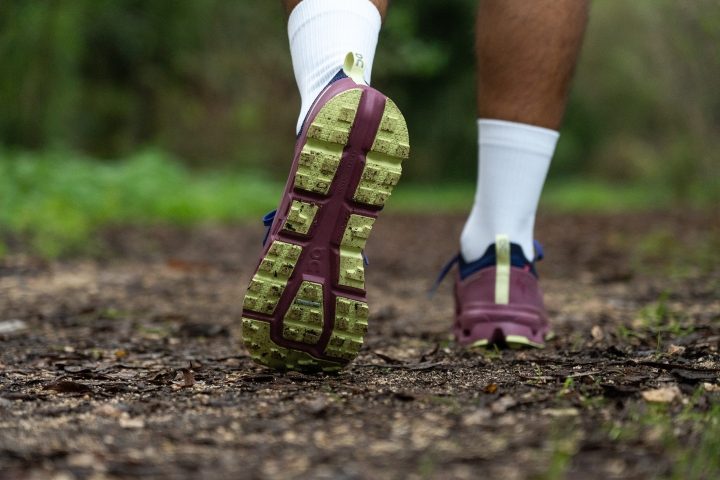
Some models perform well on both roads and trails, and they are called door-to-trail, road-to-trail, or hybrid shoes. Within On, a great choice is the Cloudvista, which is a fun and forgiving shoe for running fast on pavement or mildly technical terrain.
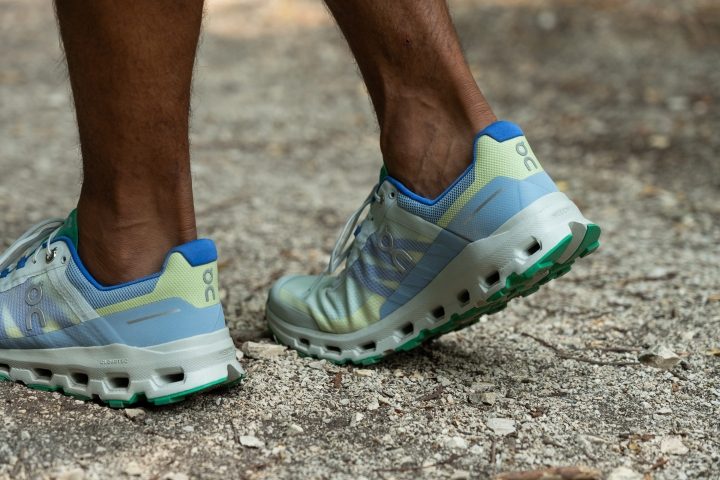
Remember that trail running shoes need to grip the ground and protect the feet much better, so they are usually sturdier, heavier, have better durability, and have a more aggressive outsole.
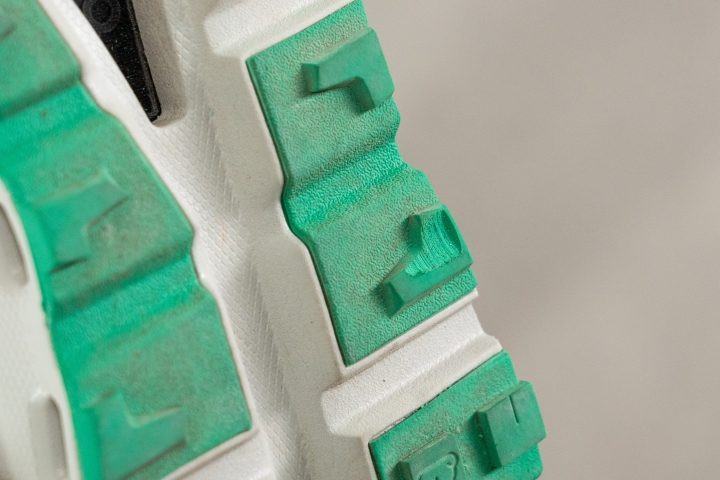
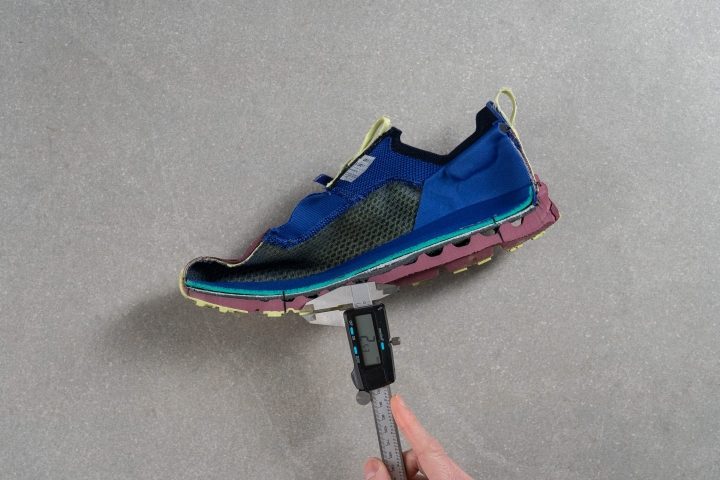
Based on our calliper measurements, the common lug depth in trail shoes from On is 2.5 mm.
This is shallower than the average 3.5 mm across trail shoes from all brands. So, if you are dealing with a lot of mud and slush, it's better to go for a brand with deeper lugs. Here are a few examples:
On running shoes based on pace
Another thing you must consider when choosing a shoe is what you intend to do with it in terms of training.
Slow, fast, or faster?
Most road running shoes are divided into 3 categories:
- daily trainers: they usually provide good cushioning and versatility for most runs. They are ideal for your day-to-day workouts at a slow pace
- tempo training shoes: get these shoes if you need to increase your pace or work on speed, as they are lighter and faster
- racing/competition shoes: while many shoes for tempo training are perfectly suitable for race day, those specifically made for racing are more performance-focused and can have an edge over other shoes in terms of speed
Energy return and shock absorption of On running shoes
Just by looking at running shoes, you can tell whether they are made by On or not. The so-called "running on clouds" is achieved by the most distinguished-looking midsole. But, that cloud-like feeling we're often chasing can come with a downside, when it's soft or plush but it bottoms out. This makes the legs work more and feel tired sooner rather than later.
To understand just how responsive On running shoes are, we perform a lab test where we lock the shoe in place, and drop a 8.5kg mass from the height of 50 mm. Total energy input is always the same: 5 J. We perform 30 repetitions and, for the test results, use only repetitions 26-30 because the first 25 mimic a natural break-in process.
The result is energy return in % and the higher it is, the more responsive the On shoe!
The same test allows us to measure shock absorption. This tells us how much each shoe is able to dampen the impact at the landing. It's crucial given that we don't want to feel all those impact forces in our muscles and joints! So, the higher the SA, the better.
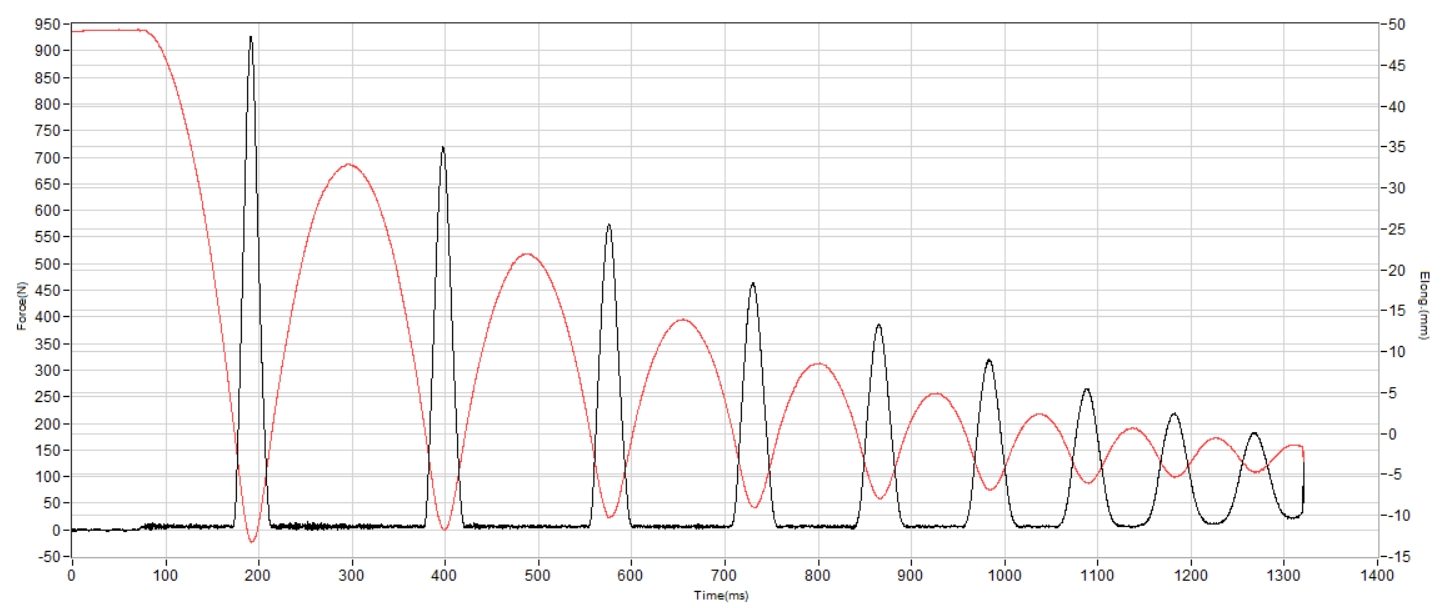
Going far? Get the right On running shoe
If you love very long runs, such as 40-50km and beyond, there are also shoes specifically made for that purpose. Normally, they have a great amount of cushioning for protection (at least 30 mm in heel stack), are slightly wider to let the foot expand once swollen, and usually are on the softer side underfoot.
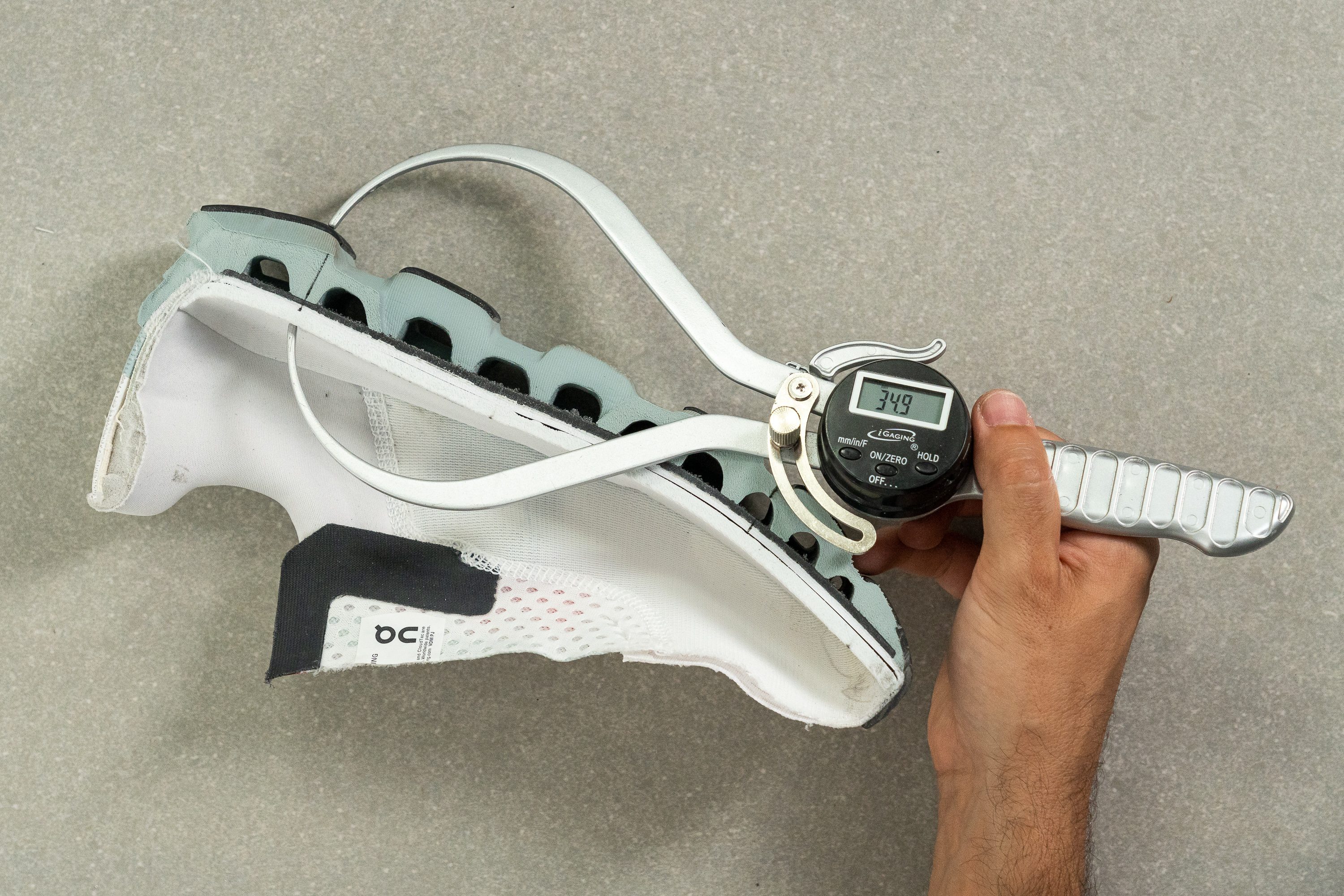
*Midsole softness: lower HA reading means softer cushioning
The right On shoe for your pronation type
Every foot is different and some runners have neutral pronation, while others have supinating feet or overpronation. Running shoes should be chosen according to the type of pronation and the type of arch.
Here is a helpful graphic to understand the difference:
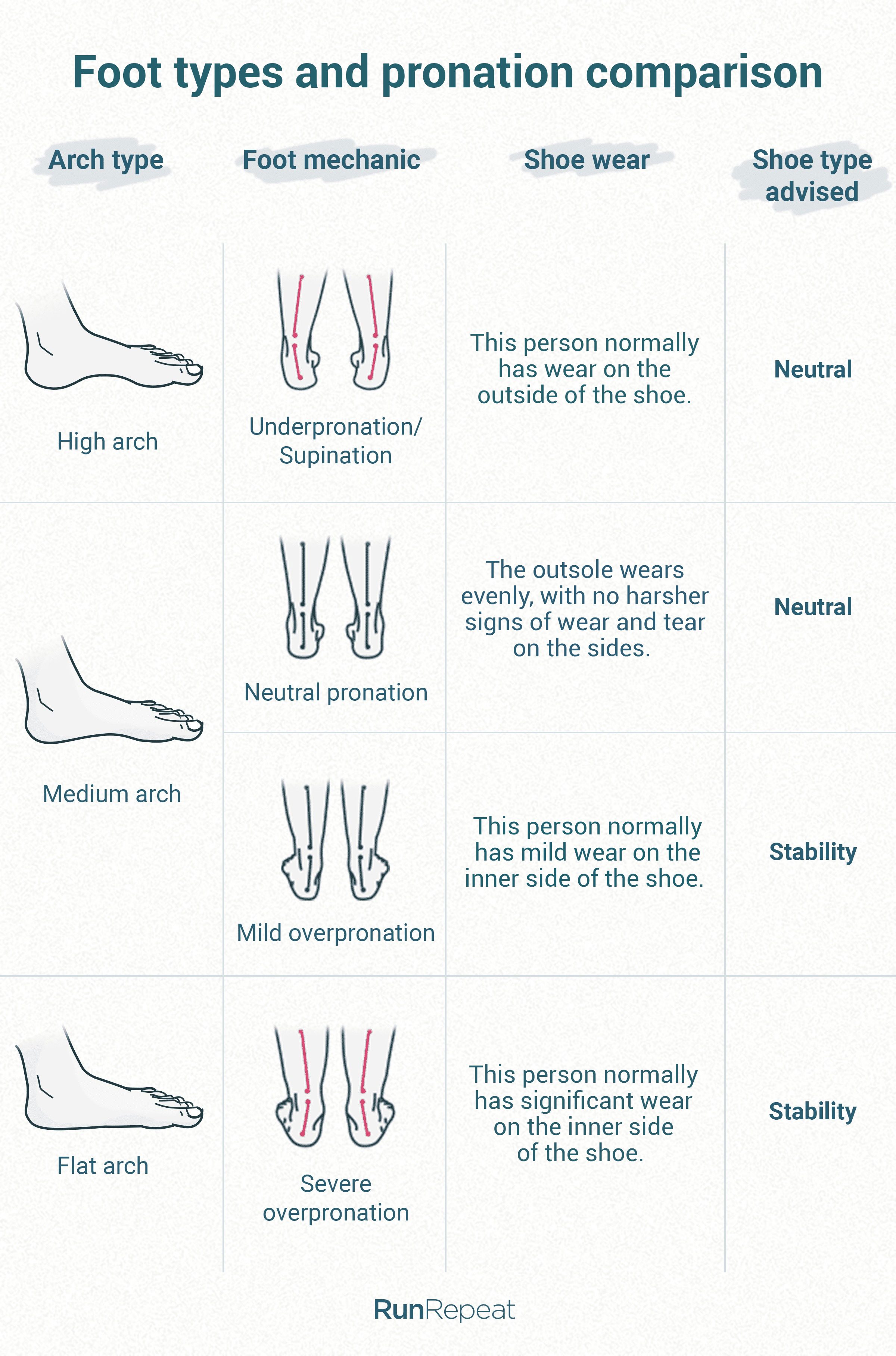
If you find out that you need extra support for your arches, go for a stability running shoe from On. Otherwise, choose a neutral model.
If you are still in doubt about your case, check out our guide on arch support to get a more in-depth idea and try the wet-paper test that is explained in it.
A shoe with good support won't let your arches and ankles collapse inward.
In our lab, we assess each shoe's stability more in-depth by evaluating their torsional rigidity and heel counter stiffness as well as measuring their platform width.
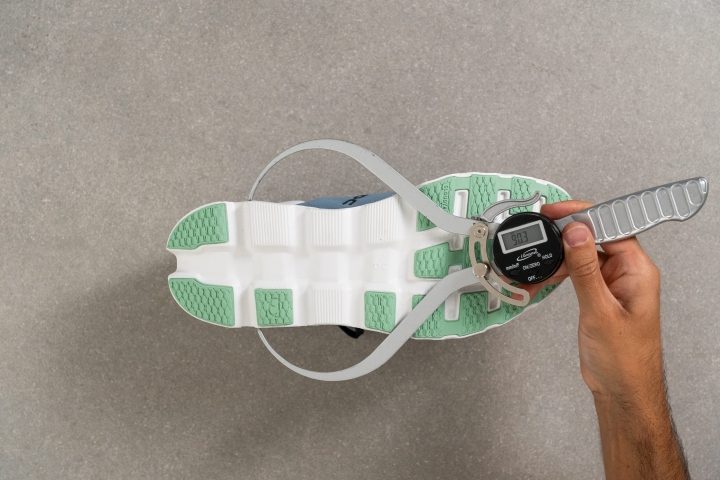
You can see how the brand's stability shoes fare against each other in the table below:
How grippy are On running shoes?
With carved midsoles that save weight, one could expect the traction to be on the lower end, because there's simply less contact with the ground. But, assumptions can blind us, so we turn to the lab tests.
In our independent lab, we perform a traction test. To do this, we follow the SATRA TM144 methodology. We press a shoe at a 7-degree angle against a wet surface, and as a result, we have a dynamic coefficient of friction (dynamic CoF or CoF). Low CoF tells us the shoe is slippery in wet conditions, so we want the CoF to be on the higher end.
On shoes for narrow, medium, and wide feet
Even in the same size, running shoes can vary in width. Although the width can be narrower or wider at the heel, it’s at the midfoot and at the forefoot where we can feel it most.
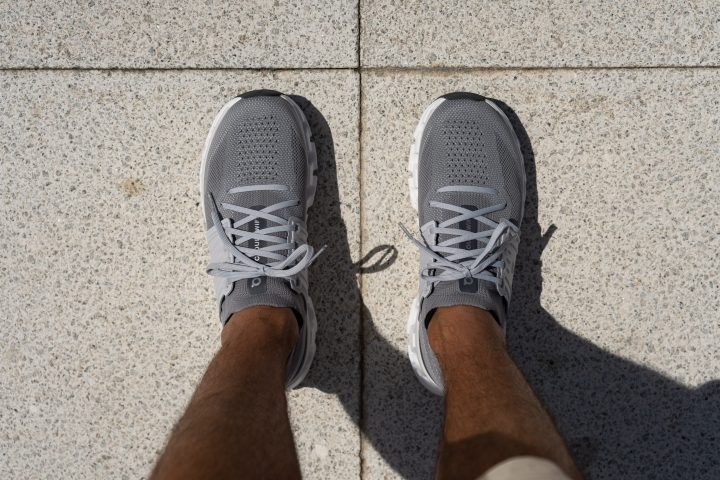
When it comes to the shoe's internal space, it's something that we measure in our lab and we're very proud of it because we haven't seen anyone do anything similar. We created a special gel that perfectly fills the shoe's interior, and we freeze it together with the shoe to get a gel mould that we can work with.
Once the gel has hardened, we take it out. This gel mould is what we can work with because it's impossible to measure the volume of the shoe on the inside without destroying the upper and the shape of the shoe.
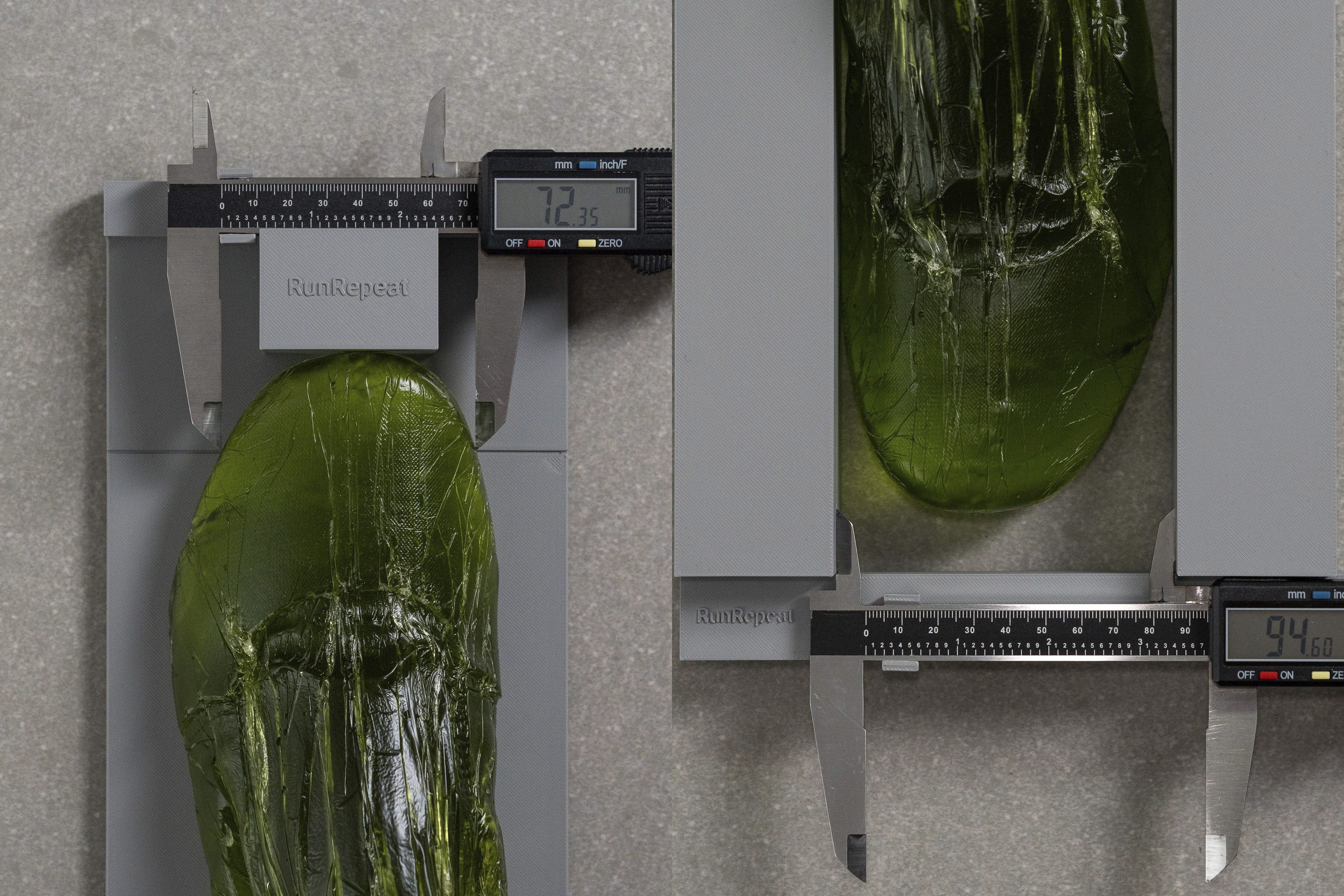
Depending on the shape of your toes, you can choose On running shoes with more room in 1 of those 2 places. Here, we showcase (and automatically update with every On shoe tested) the widest toeboxes:
When we cut the gel mould in half, we're also able to measure the height of the toeboxes in On running shoes. If you've ever experienced black toenails or bleeding toenails, we recommend looking for toeboxes with more vertical room.
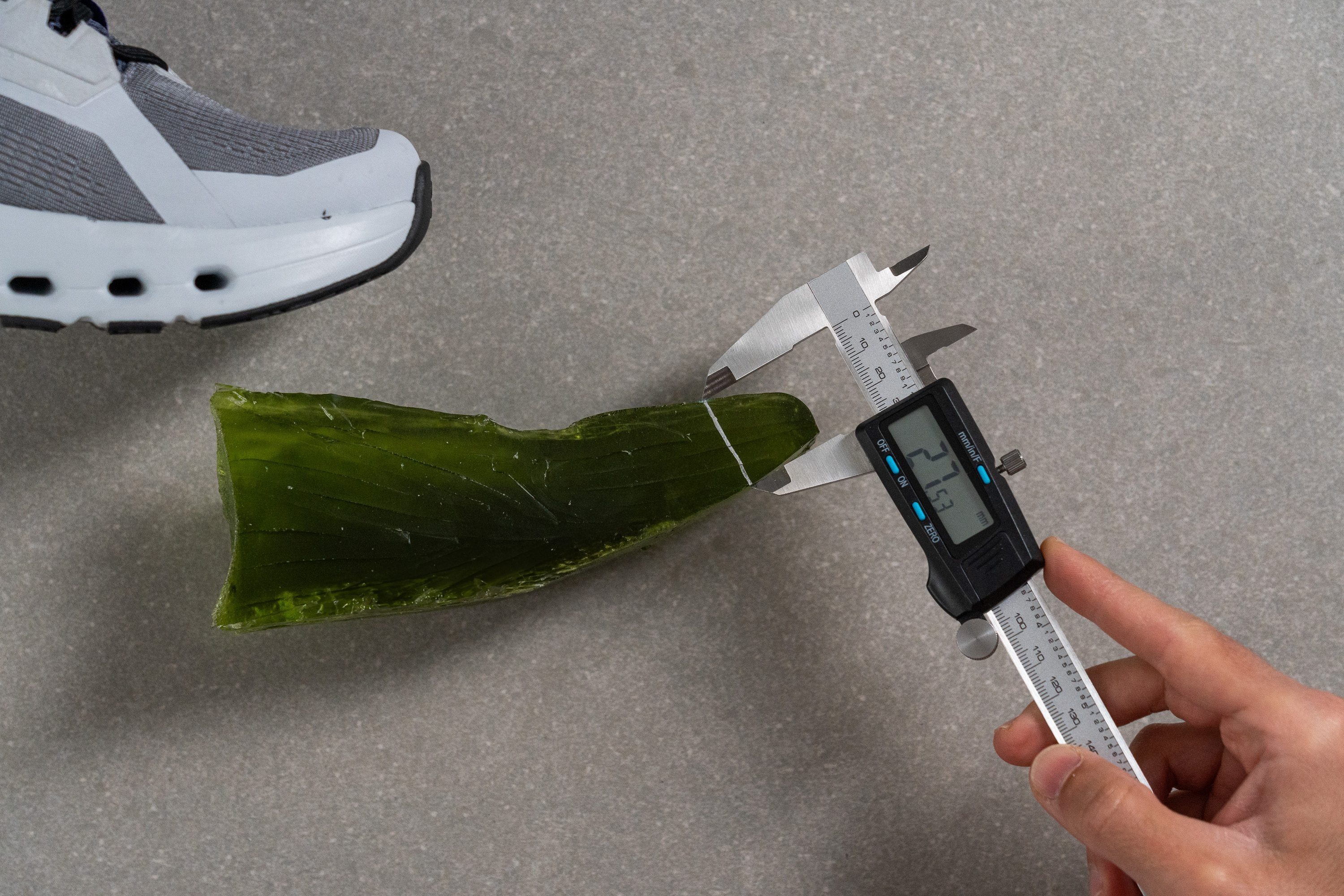
Choosing the heel-to-toe drop in On shoes
If you're a beginner, it's a general recommendation to stick to the unwritten industry standard of 8-10 mm.
Heel-to-toe drop is something a lot of runners don’t know about, but it is definitely, an aspect to take into account when buying a new shoe. It’s the difference in height (in millimetres) between the heel and the forefoot.
Example of a heel striking pattern
Most running shoes put the foot in a position that is inclined forward, which means higher at the back and lower at the front. The difference in height between the two points can vary from 0 to 14 mm, and it can make your muscles, tendons, and joints work in different ways.
It’s not a rule that applies to everyone, but normally:
- higher drops facilitate heel strike and load knees and hips more.
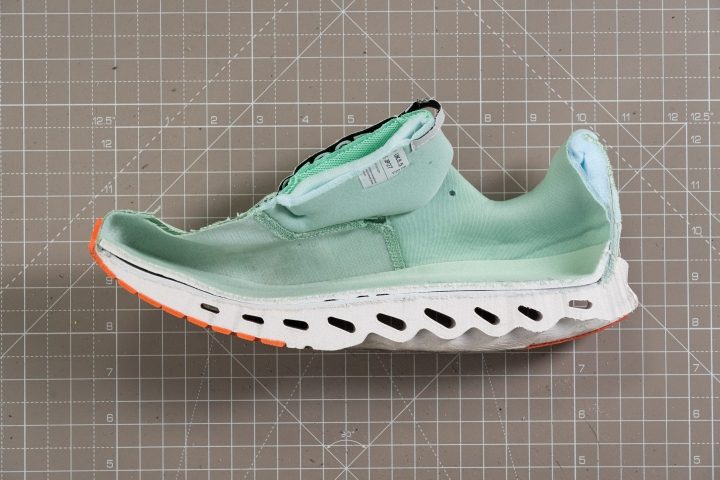
- lower drops help with forefoot and midfoot strike, and load ankles and calves. The Cloudventure Peak has a drop of 6 mm
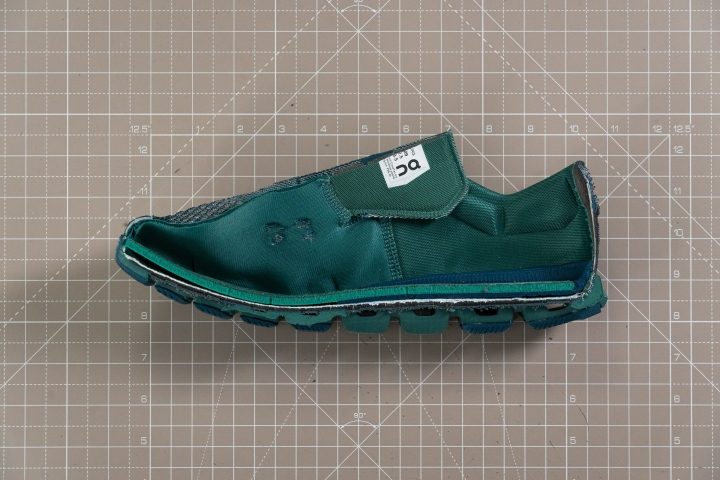
On does not produce zero-drop running shoes, such as other brands do (take Altra, for example) and its products don’t have very low drops, as they go from 4 to 11 mm, which is a range that can suit most runners.
Want to know more about this? Read our guide on the drop.
Running in summer? Make sure your On shoe is breathable
We have found that most running shoes from On come with very well-ventilated uppers.
In addition to trying shoes on our feet, we also used the most effective and visually striking tests to evaluate the breathability level of these shoes.
We fill shoe uppers with smoke to see how easily it escapes through the material.
We also hover the shoe's half-cut upper over the light to see the most ventilated areas.
On a 1-5 scale, where 5 is the most breathable, On running shoes got an average score of 4. This is the same as the average of running shoes from other brands. And if you're wondering what the most breathable On running shoes are...
What sets On apart from other brands?
Attention magnets
They are attention magnets with their design. This holds true for every category, whether they are for walking or playing tennis. And the same goes for their running shoes, which are stylish and perfectly suitable for casual wear.
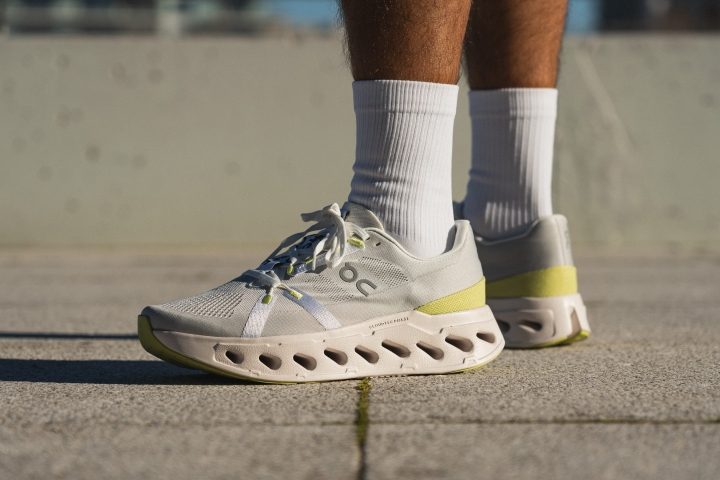
Not for budget-minded runners
They are quite pricey! On has only a couple of running shoes that cost £140, in comparison to all the other models, which cost on average around £160.
Firm ride, yet responsive
On’s running shoes are usually on the firm side underfoot.
This is because the midsole is made of a denser and harder foam, that does not compress much under a runner’s weight. It doesn’t feel soft, but at the same time, it doesn’t waste as much energy as soft foam does. Instead, it gives it back to you.
Having lab-tested several hundred running shoes, we can confidently claim that the cushioning of On running shoes is 20% firmer than the average.
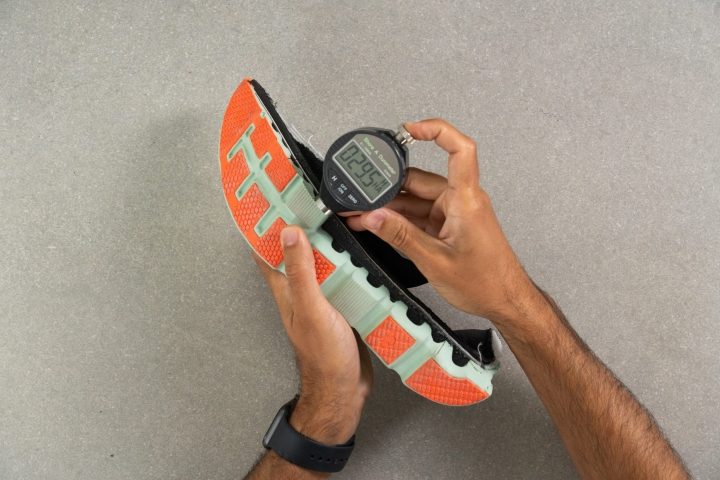
Oops! Less durable uppers!
One On Cloud shoe after another, we kept getting more and more disappointed with the ability of the brand's uppers to withstand abrasion.
After 12 seconds of drilling the toebox with our Dremel, it ended up with a see-through hole in most cases.
The same happened to the heel padding of On running shoes. A mere 4 seconds of Dremel touch left significant wear on these delicate uppers.
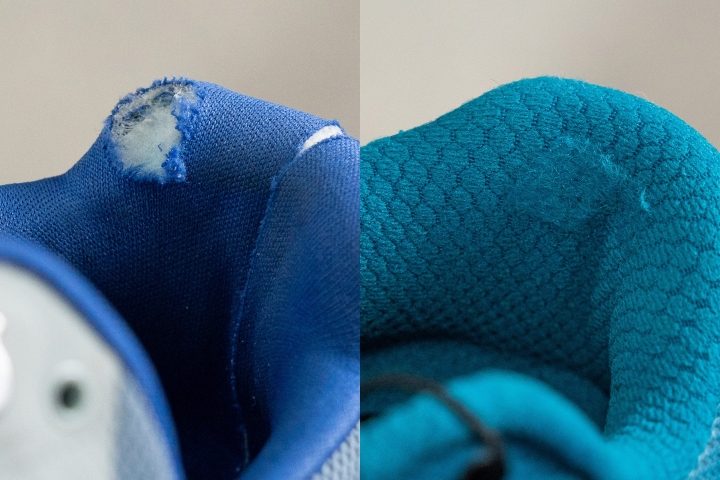
On a 1-5 scale, where 5 is the most durable, very few On shoes managed to score above 2-3.
*Higher numbers indicate better durability in the case of the toebox and heel padding. For the outsole, it's the lower numbers that indicate better durability because that means the dent our Dremel has made was shallower.
Technologies found only in On running shoes
The idea of the founder, a former professional triathlete, was to create a running shoe that was fun, and at the same time could reduce heart rates and muscle fatigue in runners. While these statements are quite bold, there are for sure some features that set On apart from other brands.
The CloudTec
This technology consists of a particular cloud-shaped midsole, that is adaptive and can deflect with weight, both vertically and horizontally, and gives a unique feel underfoot that many runners have come to love.
Bear in mind, though, that to appreciate this technology you must like shoes that are on the firmer side of things.
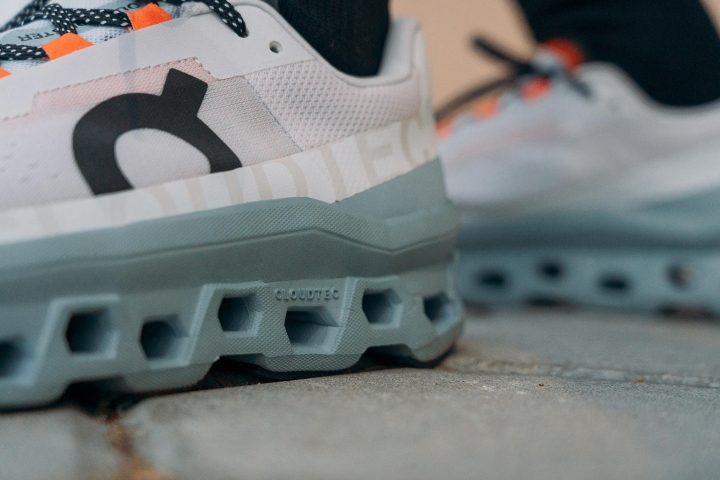
The Speedboard
The CloudTec alone wouldn’t be able to recreate the feel mentioned above. It needs something to help propel the foot forward, and this is why On added a plastic layer, sitting between the midsole and the upper, that offers help with the toe-off at every step.
The combination of the two technologies makes the shoes more responsive and faster.
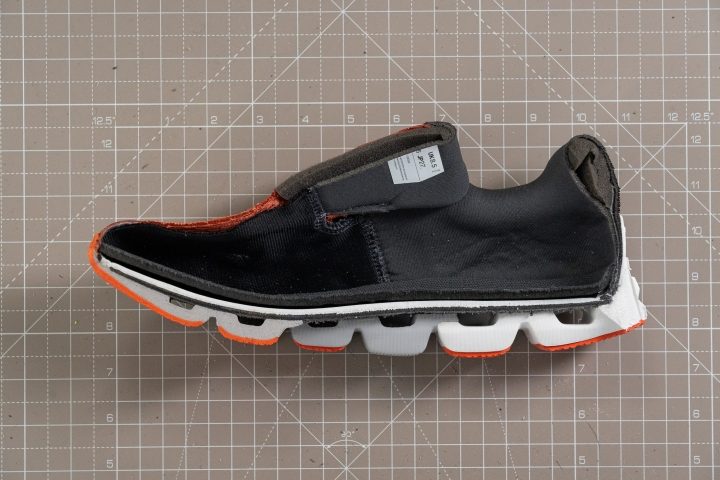
3x UTMB winner wears On running shoes
Most brands have ambassadors and athletes who promote, train, and race using the brand’s gear.
Xavier Thévenard is one of On’s athletes. His name will not sound familiar to the majority of people, but in the world of trail running and ultramarathons, he’s definitely well-known. Xavier won the 170km Ultra Trail of Mont Blanc three times, arguably the most important ultra-trail running race in Europe. He wears the Cloudultra for long distances and the Cloudvista for shorter runs.
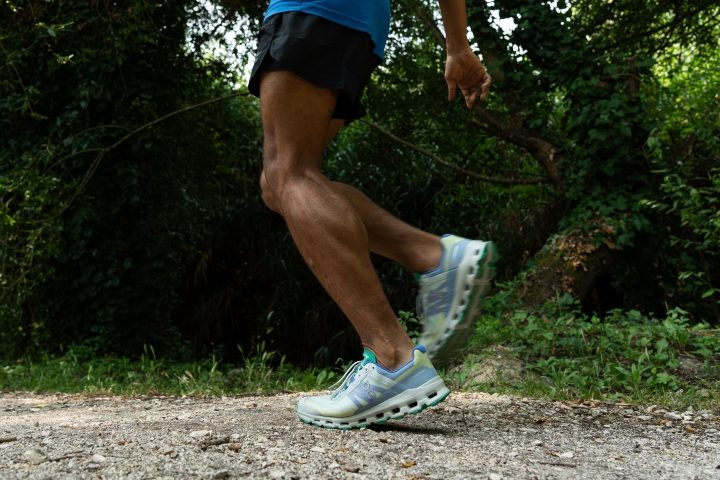
FAQ
Are On running shoes good for walking?
Yes. The Cloudvista is a good example as it is comfortable, feels lighter than its weight, is very breathable, can go on gravel, and looks good.
If you are not going to run at all, have a look at On’s walking shoes such as the On Cloud 5, which weighs only 8.4oz (238g), has an amazing in-shoe feel, it’s fast to slip on and off, and provides a rather good amount of cushioning and protection underfoot.
Should I get waterproof shoes?
Waterproof shoes have a membrane, usually made of Gore-Tex, that serves as a barrier against water. They can be a great choice when you are running in inclement weather and On has some models made for this, which are very easy to spot as they have “Waterproof” in the name itself.
Keep in mind that these models usually have some downsides compared to non-waterproof shoes:
- they are slightly heavier
- breathability is not as good. This means that your feet might sweat more and get warmer
- if you let your feet sink in a puddle, or water slides down your legs or trousers and gets inside the shoes, it’s very likely that it will be insanely difficult to dry.
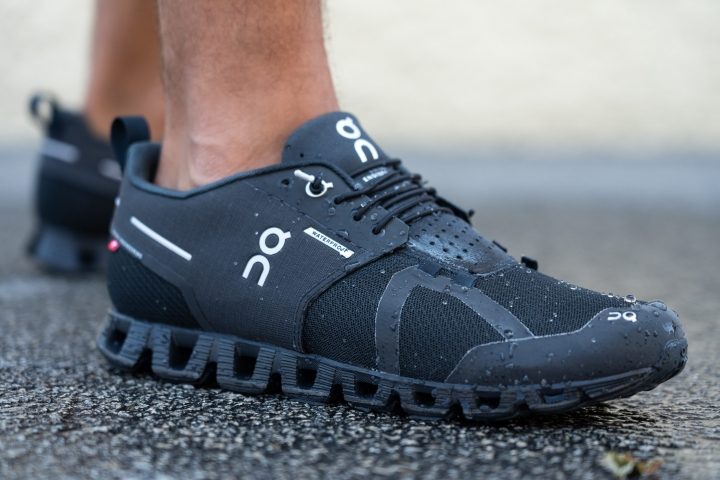
Are there cheap On running shoes?
On running shoes are generally a bit expensive. The average price is around £160, which is higher compared to other brands’, for example Salomon (£140) or Brooks (£130).
Runners who mean to save some money don’t have a really cheap choice within On. The lines with the lowest price tag are the Cloudrunner (£150), which sit in the stability category, and the Cloudflow (£140), for neutral feet.
Do On shoes fit true to size?
On running shoes usually wear true to size. In order to avoid mistakes, keep in mind that:
- if you know you have wide feet, it’s very likely that you will need to go a half size up
- if you choose an On waterproof shoe, bear in mind that they tend to fit snugger, and the brand itself suggests getting a larger size (+1 US size from your regular one)
- as a general tip, if you happen to fall between sizes, choose the larger one. To get a better idea of how it works with sizes, check out our guide on this topic: On size chart.
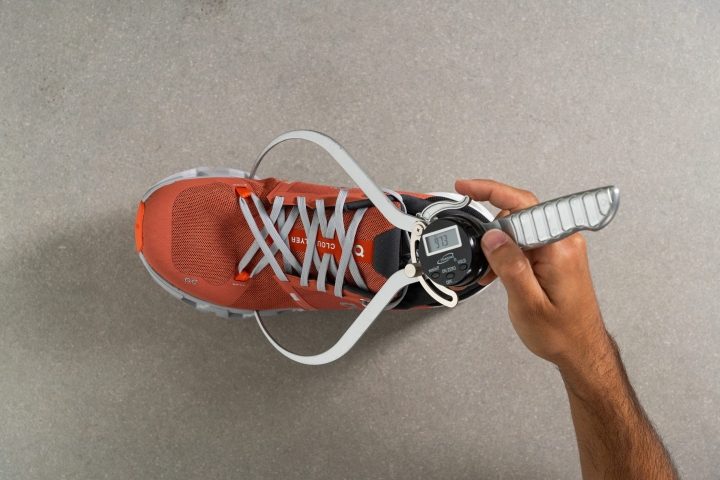
Are On shoes sustainable?
Yes. In recent years running brands have started making an effort to reduce their impact on the planet. This comes in various forms, such as, for example, reducing the amount of material used to create a shoe, or by using recycled parts, and so forth.
In order to find new ways to contribute to the environment, On worked on different projects, Here are some of them.
Cyclon
This is a subscription service in which runners, instead of throwing away their On shoes, can return them to the company and get a new pair. This way On can recycle the old shoes and with them they make new ones.
CleanCloud
Another interesting way in which On limits the impact on the planet is by using a foam that is made with carbon emissions. This is made possible through a process that captures industrial carbon emissions and transforms them into liquid ethanol, which is itself turned into EVA, a widely-used material for creating midsoles.
